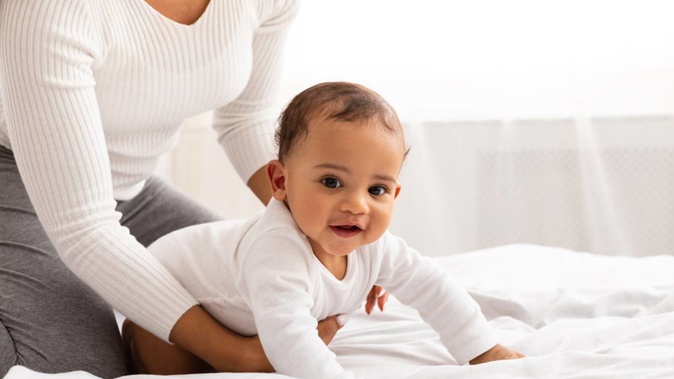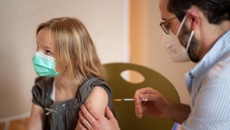
A rising proportion of children in UK hospitals with Covid are under the age of 1, papers released by the Scientific Advisory Group on Emergencies (Sage) show.
More than four in 10 children hospitalised with coronavirus are less than a year old, the data show – up from less than one in three with previous variants.
Experts said the latest research, which comes from about half of NHS hospitals, also shows that when children are hospitalised, the disease is milder than in previous waves, with hospital stays half as long, and less oxygen and ventilation being used.
They said data on children aged 12 to 17 show that of 20 cases in intensive care, none were vaccinated.
Latest figures also showed a tripling in paediatric admissions since late December, with the sharpest rise among the youngest children, health officials said on Friday.
Prof Calum Semple, a child health and outbreak expert from the University of Liverpool and an adviser to Sage, said: "Our study has shown that there's been an increased proportion of children being admitted in the last four weeks associated with the onset of Omicron. And this has been particularly driven by children under the age of 1."
Scientists said the data suggest that the children were "not particularly sick", with some of the rise attributed to extra caution taken when babies suffer a fever, meaning they may be more likely than older age groups to be admitted to hospital.
The trends are also likely to reflect widespread transmission across the population working its way through age groups.
However, they said the nature of the Omicron variant may also be playing a part, as it is thought to be more likely to affect upper airways, which are smaller in children and can increase the likelihood of conditions affecting their breathing.
Prof Russell Viner, a fellow Sage adviser and professor of adolescent health at University College London (UCL), said: "There's potentially some evidence that this variant of the virus is affecting the upper airways more than previous variants. Children have much smaller upper airways … they are more likely to get conditions such as croup, and other conditions where they really struggle to breathe."
However, scientists said the data was "reassuring" about the severity of disease.
The data for the month ending January 12 show the length of stay is now down to an average of 1.7 days for Covid cases under the age of 1, compared with 3.2 days in the last wave and 6.6 days in the first wave. The use of oxygen and ventilation also dropped significantly in all age groups.
Older children in intensive care 'not vaccinated'
Currently, vaccines are being offered to all 12- to 17-year-olds as well as clinically vulnerable 5- to 11-year-olds.
Asked whether he would like jabs being rolled out to younger groups, Prof Semple said this was a matter for the Joint Committee of Vaccination and Immunisation, which has passed early findings.
However, he said the latest data showed that of 20 children aged between 12 and 17 who went to intensive care, none had been vaccinated. He added that the pattern was "an interesting observation" but the numbers were too small to make strong inferences.
Christina Pagel, the professor of operational research at UCL, said: "The absolute number of hospital admissions in children of all ages have been going up steeply since the omicron wave, but this analysis provides a lot more detail.
"It is obviously concerning that significantly more infants under 1 are being admitted to hospital than previously. This cannot be explained just by vaccination status or high community prevalence, since the same is not true for instance of 1- to 4-year-olds.
"Reassuringly, babies are not needing to stay long in hospital once admitted. It is possible that Omicron's preference for upper airways is affecting young children more, even while it reduces burden in adults and older children. We urgently need to understand more about what might be causing this increase."
Dr Susan Hopkins, chief medical adviser at the UK Health Security Agency, said the rise in hospitalisations among children was being examined.
She said: "We'll be undertaking further analysis to investigate the small rise in the number of children admitted to hospital. But currently, Covid-19 poses a very low health risk to children and infants. Early data show that young children who are hospitalised experience mild illness and are discharged after short stays in hospital."
Take your Radio, Podcasts and Music with you









